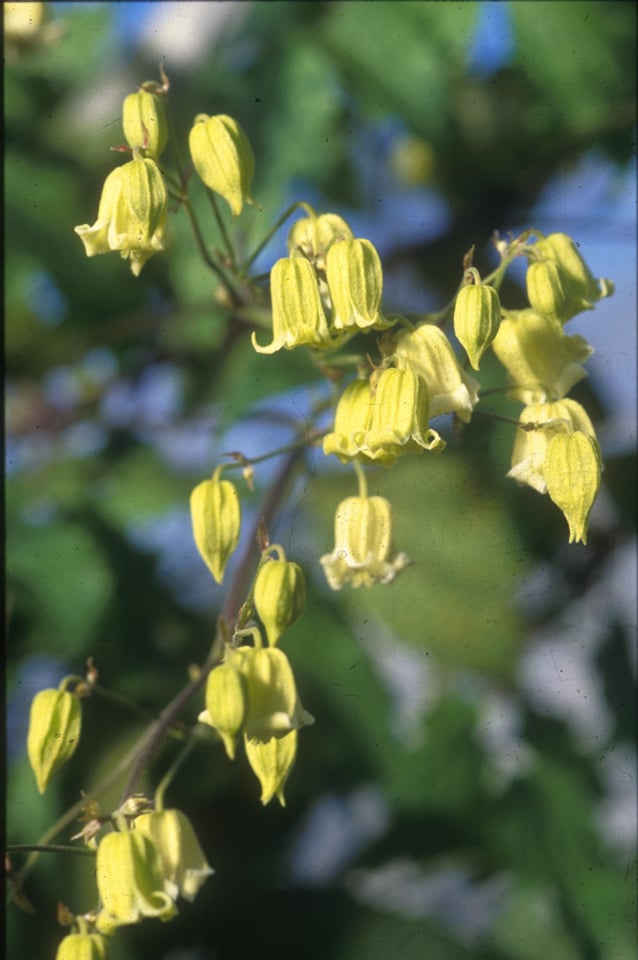Clematis rehderiana
nodding virgin's bower
A large deciduous climber with mature mauvish-brown stems and leaves pinnately divided into serrate, oval leaflets. Velvety, bell-shaped pale yellow flowers 2cm in length with reflexed tips and greenish-brown stamens are borne in 9cm long panicles, and are sweetly scented. Flowers midsummer to early autumn
Synonyms
Clematis nutans BecketClematis nutans var. thyrsoidea
see moreClematis buchananiana Finet & Gagnep.

Buy this plant
Size
Ultimate height
4–8 metresTime to ultimate height
2–5 yearsUltimate spread
1.5–2.5 metresGrowing conditions
Moisture
Moist but well–drainedpH
Alkaline, NeutralColour & scent
| Stem | Flower | Foliage | Fruit | |
| Spring | Green | |||
|---|---|---|---|---|
| Summer | Yellow | Green | ||
| Autumn | Yellow | Green | Grey Silver | |
| Winter |
Position
- Full sun
- Partial shade
Aspect
North–facing or East–facing or South–facing or West–facing
Exposure
Exposed or Sheltered Hardiness
H5Botanical details
- Family
- Ranunculaceae
- Native to GB / Ireland
- No
- Foliage
- Deciduous
- Habit
- Climbing
- Potentially harmful
- Skin irritant. Wear gloves and other protective equipment when handling. Pets (rabbits): Harmful if eaten. For further information and contact numbers regarding pets, see the HTA guide to potentially harmful plants
- Genus
Clematis can be deciduous or evergreen shrubs or herbaceous perennials, mostly climbing by twining leaf-stalks, and often with showy flowers. Some have attractive fluffy seedheads in autumn
- Name status
Correct
- Plant range
- W China
How to grow
Cultivation
Plant in a moisture-retentive, well-drained soil, with the roots and base of the plant kept cool and shaded by other plants or a layer of pebbles at the base. Plant with the crown 5-8cm (2-3in) deep to encourage new shoots to grow from below ground level. See clematis cultivation for more advice
Propagation
Propagate by seed, layering or semi-hardwood cuttings
Suggested planting locations and garden types
- Cottage and informal garden
- Wall side borders
Pruning
Pests
May be susceptible to aphids, snails and caterpillars; petals may be eaten by earwigs
Diseases
May be susceptible to honey fungus (rarely), clematis wilt and clematis slime flux
Get involved
The RHS is the UK’s gardening charity, helping people and plants to grow - nurturing a healthier, happier world, one person and one plant at a time.